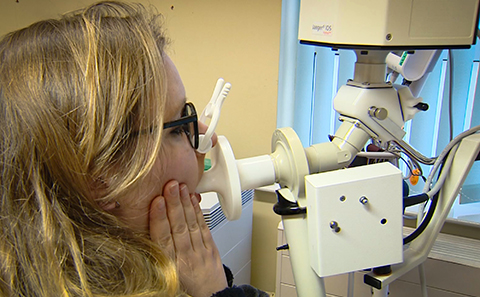University of Southampton Launches 34-Year Research Project on Asthma and Allergies
A 34-year follow-up of one of the oldest and most comprehensively studied birth cohorts is underway on the Isle of Wight to reveal new insights into allergies and asthma.
Researchers from the University of Southampton have been following up on the health of over a thousand people on the Isle of Wight from when they were born. They’ve been studying the prevalence, natural history, environmental risk factors and genetic susceptibility of allergies and asthma.
The Isle of Wight Birth Cohort has provided valuable data since it was established in 1989. It’s informed over 100 research publications, helping us to better understand asthma, rhinitis, eczema and food allergies – especially how these conditions might change over someone’s lifetime.
The project is led by Professor Hasan Arshad from the University of Southampton and NIHR Southampton Biomedical Research Centre (BRC). He said: “The stable population on the Isle of Wight makes it an ideal place to study long term diseases. A huge amount of knowledge has been contributed by this study and its participants. We now know that asthma and allergies have been increasing and know more about why some people develop these conditions, while others don’t.”
Members of the cohort, who have taken part in seven studies to date (at ages one, two, four, 10, 18 and 26 years), answer a comprehensive questionnaire before attending a health check at David Hide Asthma and Allergy Research Centre, St Mary’s Hospital on the Isle of Wight. There they will have tests to check their lung function, allergic sensitivity and nitric oxide levels, which reflect inflammation of the airways.
For the first time, participants will also be provided with monitors to track levels of indoor air pollution over two weeks and relate this to lung function and asthma. There are also plans to use cutting-edge AI breath analysis and molecular phenotyping to develop new ways of diagnosing and treating asthma.
Many members of the cohort are now parents themselves and have put their own children forward to be included in the Birth Cohort.
This means that three generations of the same families – parents of the birth cohort, their children and their grandchildren, have provided valuable data for scientific research.
There are now over 600 children in this ‘third-generation’ group, who are being assessed at six years of age as part of an ongoing project running alongside the 34-year follow-up
Professor Arshad, who is also an honorary consultant with Isle of Wight NHS Trust, said: “In many ways, the Isle of Wight birth cohort provides a unique wealth of information. Being able to study asthma and allergic diseases across three generations helps us to understand how genetics and environmental exposures influence health across generations.
“I would like to thank the families that have been so committed to this research over many years. Your contributions will help families for many generations to come.”
The 34-year follow-up will last between 18 months and 2 years. It is being funded by the David Hide Asthma and Allergy Charitable Trust, sponsored by the Isle of Wight NHS Trust, and supported by the NIHR Southampton Biomedical Research Centre.

